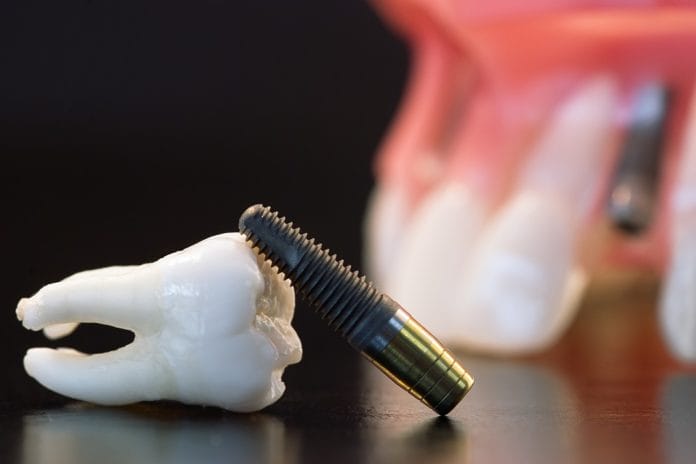Research suggests there is a correlation between the failure of dental implants and certain osteoporosis medications. Ongoing research seems to confirm this correlation such as the study in the Journal of Oral Implantology titled, “Influence of Bisphosphonates on Implant Failure Rates and Characteristics of Postmenopausal Woman Mandibular Jawbone.” The research provides more information on how the osteoporosis medication, bisphosphonate, can affect the success rate of a patient’s dental implant.
Background Information on Osteoporosis
Osteoporosis is defined by the National Institute of Health as a disease which causes bones to become weak and brittle due to low bone mass. Patients who are older with a small body size are more susceptible to developing osteoporosis. People who have the disease in their family medical history are also more likely to be diagnosed with it. Although both men and women can be affected by osteoporosis, it’s mostly associated with women.
Additional risk factors which can increase the chances of being diagnosed with osteoporosis include lack of exercise, anorexia nervosa, low sexual hormones (i.e., estrogen or testosterone), excessive alcohol, certain medications, and smoking. A diet low in calcium and vitamin D can also lead to bone loss and broken bones.
The Link between Dental Implant Medication and Osteoporosis
A study published in the Journal of Oral Implantology found a popular medication used to treat osteoporosis could negatively affect a patient’s dental implants. The medication in question, bisphosphonate, does this by changing the quality of the patient’s mandibular bone.
For the study, researchers analyzed 25 patients with osteoporosis who were over the age of 60 years old and already had dental implants. About 14 of the patients did not take bisphosphonate and took hormone therapy, while 11 participants did take the medication and had a total of 25 implants. Next, the researchers decided to examine the participant’s complete bone thickness and mineral density over a year.
At the end of the study, researchers discovered all of the patients who took hormone therapy did not experience any issues with their dental implants. However, among the group which took bisphosphonate, three patients had three of their dental implants fail within one year.
The researchers surveyed the data, which confirmed bisphosphonate could impact the overall quality of the cortical bone in the posterior mandible. Based on the data, they believe dental professionals should continue to carefully assess their patient’s medications to see if they are taking bisphosphonate before they recommend dental implants as a potential treatment option.










